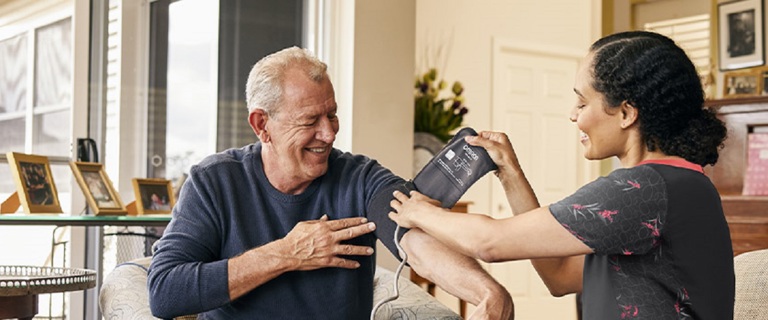Undertreatment of pain an issue for older Australians

Pain that interferes with a person’s usual activities is a risk factor for increasing frailty and loneliness – with older people more likely to be at risk from unmanaged pain.
Bolton Clarke Research Institute Head of Research Judy Lowthian and Research Officer Georgina Johnstone said the Institute’s biennial Retirement Living Health and Wellbeing Survey found 54 per cent of retirement village residents experienced pain on at least one day per week and 30 per cent on five or more days a week.
For 54 per cent of respondents, pain interfered with their usual activities sometimes or always, while 38 per cent experienced moderate or extreme pain or discomfort.
“Older people have the highest rate of pain, which is experienced by about one in five Australians aged 65-84 and one quarter of those aged 85 and over,” Professor Lowthian said.
“The good news is that action can be taken – pain is experienced differently by everyone and because many things affect it, lots can be done to change it. It’s more than a physical feeling and is influenced by sleep, exercise, general health, attitudes, beliefs, mood, environment and the people around you.”
She said for care providers, it’s critical to recognise and respond to a person’s subjective experience of pain.
“Often older people can be under-treated for pain because of misconceptions about ageing and pain – they might feel it’s a natural part of ageing or that they’re being a nuisance. But untreated or poorly treated pain can affect a person’s ability to function, their emotional and psychological wellbeing and ultimately their quality of life.
“We also need to recognise that cognitive impairment may prevent older people from reporting pain – Pain Australia estimates that 80 per cent of residential aged care residents have chronic pain, and over half live with dementia. While some people may be able to report and discuss their pain, others may be unable to tell us about it and may express pain through changes in behaviour and body language.”
Professor Lowthian said holistic non-pharmacological and pharmacological management strategies could significantly improve quality of life for older people experiencing pain.
This week (22-28 July) is National Pain Week, aimed at addressing barriers for about 3.6 million Australians who experience chronic pain.

